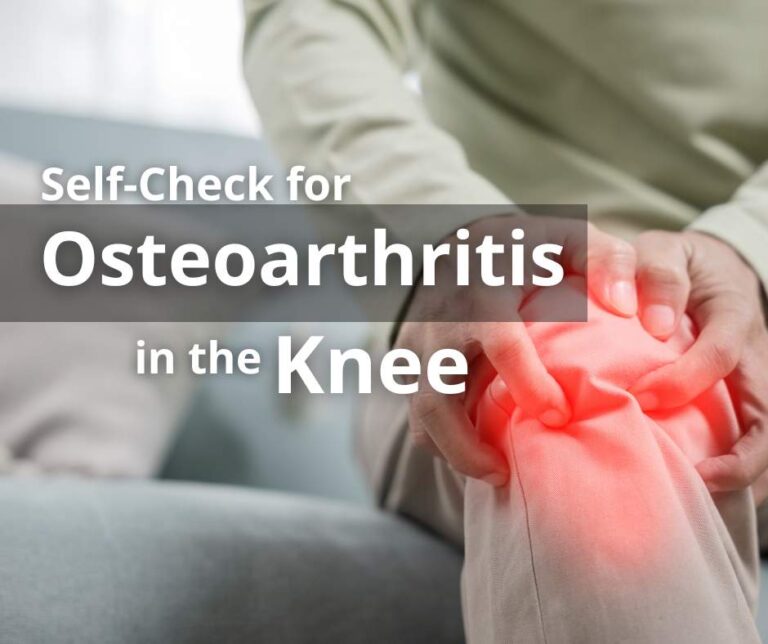@dr.pongbonetalk มือชา เท้าชา ผิวหนังหนาๆ ยุบยิบๆ นั่นเป็นอาการของเส้นประสาทเกิดการเสียหายครับ และถ้าละเลย อาจเสียหายถาวร ถึงขั้นพิการถาวรได้ ชาแบบไหน เป็นอะไร และแบบไหนที่ต้องรีบมาหาหมอ วันนี้หมอโป้งจะมาเล่าให้ฟังครับ #หมอกระดูก #หมอ #แพทย์ #หมอโป้ง #คุยเฟื่องเรื่องกระดูก #เทรนด์วันนี้ #ชา #ชามือชาเท้า #ชามือ @หมอโป้ง คุยเฟื่องเรื่องกระดูก @หมอโป้ง คุยเฟื่องเรื่องกระดูก @หมอโป้ง คุยเฟื่องเรื่องกระดูก ♬ เอาไว้ค่อยคุย - GLISS
Numbness or beriberi or tingling is a warning sign that should not be overlooked as it may indicate serious underlying diseases such as stroke, diabetes, kidney disease, and cancer. Additionally, improper use of the body is a major cause of this symptom, especially in the hands and feet.
1. Numbness as a Cause of Serious Diseases
Numbness is a warning sign that should not be ignored, as it may indicate serious hidden diseases. In this article, we will explore its major causes that could lead to dangerous conditions.

Numbness from Stroke
Stroke is a major cause of this symptom, particularly sudden numbness in the hands and feet, usually occurring on one side of the body. Other symptoms may include:
- Weakness in the face, arm, or leg on one side
- Slurred speech or difficulty understanding speech
- Vision problems, such as blurred vision or double vision
- Loss of balance or unsteady walking
- Severe headache with no known cause
If you experience these symptoms, seek medical attention immediately, as stroke is an emergency that requires prompt treatment.
Numbness from Diabetes
Diabetes is another cause, especially in the hands and feet, due to diabetic neuropathy. Symptoms include:
- Tingling in the hands and feet
- Burning pain in the hands and feet
- Loss of sensation in the hands and feet
- Muscle weakness
- Slow-healing foot ulcers
Diabetes patients should control their blood sugar levels and regularly check their feet to prevent complications.
Numbness from Kidney Disease and Cancer
Chronic kidney disease and certain types of cancer can also cause numbness, often accompanied by beriberi. Symptoms include:
- Numbness in the hands and feet
- Tingling in the limbs
- Fatigue and loss of appetite
- Muscle and joint pain
- Dry, itchy skin
Individuals with these symptoms should consult a doctor for diagnosis, especially if they have risk factors for kidney disease or cancer.
Numbness from Thyroid Disease
Thyroid disease can also cause this symptom in the body. The following symptoms are often associated with this condition:
- Hyperthyroidism
Hyperthyroidism, also known as thyrotoxicosis, occurs when the thyroid gland produces and releases too much thyroid hormone. This condition primarily results from an overproduction of hormones, thyroid inflammation, or excessive intake of thyroid hormones through medication or supplements. Hyperthyroidism accelerates the body’s metabolism, leading to symptoms such as rapid weight loss, heart palpitations, excessive sweating, irritability, and insomnia.
- Nerve Damage
In cases of hyperthyroidism, elevated thyroid hormone levels can impact the nervous system, potentially causing inflammation or damage to peripheral nerves (peripheral neuropathy), which can lead to numbness, particularly in the hands and feet. Additionally, hyperthyroidism can cause tingling in the hands due to changes in blood flow and nerve function.
- Numbness with Fatigue
Patients with hyperthyroidism often experience numbness along with fatigue. The fatigue results from the body’s overexertion due to the increased metabolic rate, making individuals feel easily exhausted. This fatigue, combined with the numbness caused by nerve damage, can significantly affect daily life. Insomnia, common in hyperthyroid patients, can further exacerbate fatigue.
Numbness from Viral Infections
Certain viral infections can affect the nervous system, leading to numbness. This is especially true for viruses that directly impact the nerves, such as the varicella-zoster virus, which causes shingles.
- Shingles Virus
The varicella-zoster virus, responsible for both chickenpox and shingles, can cause beriberi along with other skin symptoms. After recovering from chickenpox, the virus can remain dormant in the nerve ganglia and reactivate later, particularly when the immune system is weakened, causing shingles. Shingles is characterized by beriberi, rashes, and fluid-filled blisters along nerve pathways.
- Nerve Inflammation
When the shingles virus reactivates, it can cause nerve inflammation. The virus multiplies within the nerve ganglia, leading to nerve inflammation and the release of the virus to the skin. This inflammation can cause pain and beriberi along the affected nerve pathways. In some cases, shingles can lead to permanent nerve damage, resulting in chronic numbness or pain even after the skin lesions heal.
- Numbness with Burning Pain
Shingles patients often experience this symptom along with burning pain in the affected skin areas. The pain usually precedes the rash by 2-3 days, followed by the appearance of red rashes and fluid-filled blisters along the nerve pathways. Patients may feel pain, burning sensations, or numbness in the rash areas. These symptoms can be severe, especially in older adults, and may persist long after the rash heals, a condition known as postherpetic neuralgia.
Effective treatment for shingles involves administering antiviral medications as soon as possible, ideally within 72 hours of symptom onset, to reduce the severity of the disease and the risk of complications such as chronic pain. Additionally, taking vitamin B can help nourish the nerves and reduce beriberi.
2. Numbness from Physical Activity
Numbness in fingertips and toes is a warning sign that should not be ignored, as it may indicate abnormalities in the nervous system that could lead to serious complications if not treated promptly. Improper use of the body in daily life is a major cause of beriberi, especially in the hands and feet.

Numbness in Thumb, Index Finger, and Middle Finger
Numbness in hands, particularly in the thumb, index finger, and middle finger, often results from the compression of the median nerve at the wrist, a condition known as Carpal Tunnel Syndrome. This is commonly caused by repetitive hand movements over long periods, such as typing on a computer, using a smartphone, or performing tasks that require gripping tools for extended durations. Those experiencing this condition may feel tingling or pain radiating up the arm, especially at night or upon waking in the morning.
Numbness in Ring Finger and Pinky Finger
Numbness in hands affecting the ring finger and pinky finger typically stems from the compression of the ulnar nerve, which may occur from prolonged bending of the elbow or pressure on the elbow area. Activities that frequently cause this issue include sleeping on the arm, resting the arm on a chair’s armrest for long periods, or using a computer with the elbow resting on a table. Individuals with this condition may feel numbness in the pinky finger, ring finger, and the side of the palm.
Numbness from Prolonged Sitting or Standing
Remaining in the same position for extended periods can cause numbness in various parts of the body. For example, sitting cross-legged, in a lotus position, or kneeling for long periods can lead to this symptom in the legs and feet due to nerve compression under the knee, which impedes blood circulation. Additionally, standing for long periods can also cause this symptom in fingertips and toes.
3. Caring for and Treating
Numbness is a warning sign that should not be ignored, as it can indicate serious health problems. Proper care and treatment are essential to prevent potential complications.
Seeking Immediate Medical Attention
Certain symptoms of numbness in the hands and feet require immediate medical attention:
- Sudden numbness accompanied by one-sided weakness may be a sign of a stroke.
- Numbness in the hands and feet along with severe pain may indicate nerve compression.
- Numbness that rapidly spreads from the feet to the torso may be due to neurological disorders.
Initial Relief for Numbness
When experiencing beriberi, you can alleviate the symptoms with the following methods:
- Gently massage the affected area to stimulate blood circulation.
- Stretch muscles and change positions, especially if you have been in the same posture for a long time.
- Soak your hands or feet in warm water for about 10 minutes to help relax the muscles.
- Alternate between hot and cold compresses to stimulate circulation.
These initial remedies can provide short-term relief for numbness in the fingers. However, if the symptoms persist, you should consult a doctor.
Preventing
Adopting healthy habits and taking care of your health are the best ways to prevent numbness:
- Eat foods rich in vitamin B, such as whole grains, eggs, milk, nuts, and leafy green vegetables.
- Exercise regularly to promote blood circulation.
- Avoid staying in the same position for long periods, especially sitting cross-legged or in a kneeling position.
- Use ergonomic supports for your hands and wrists while working.
- For diabetic patients, maintain normal blood sugar levels.
Numbness is a warning signal from your body. If you notice any abnormalities, consult a doctor promptly. Changing your habits, taking care of your health, and avoiding positions that compress nerves can help prevent and alleviate numbness. Do not ignore these warning signs for long-term health.
Read our articles
Read other related articles
- Numbness & Tingling: Causes & Treatment by Cleveland Clinic
- What causes numbness and tingling? by Alana Biggers, M.D., MPH — Written by Jennifer Huizen
- Don’t Ignore Numbness in Your Hands and Feet! by Vejthani Hospital
- Numbness By Mark Freedman, MD, MSc, University of Ottawa













